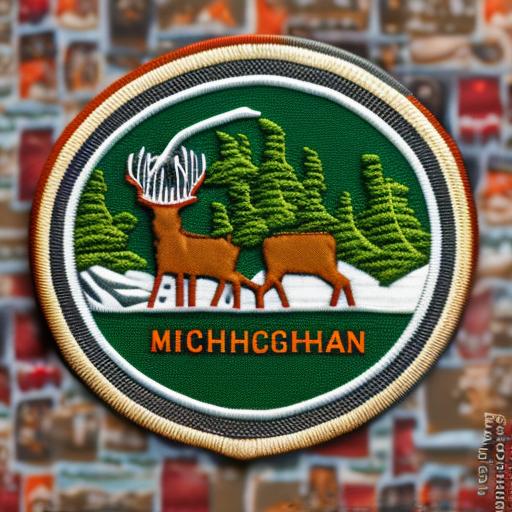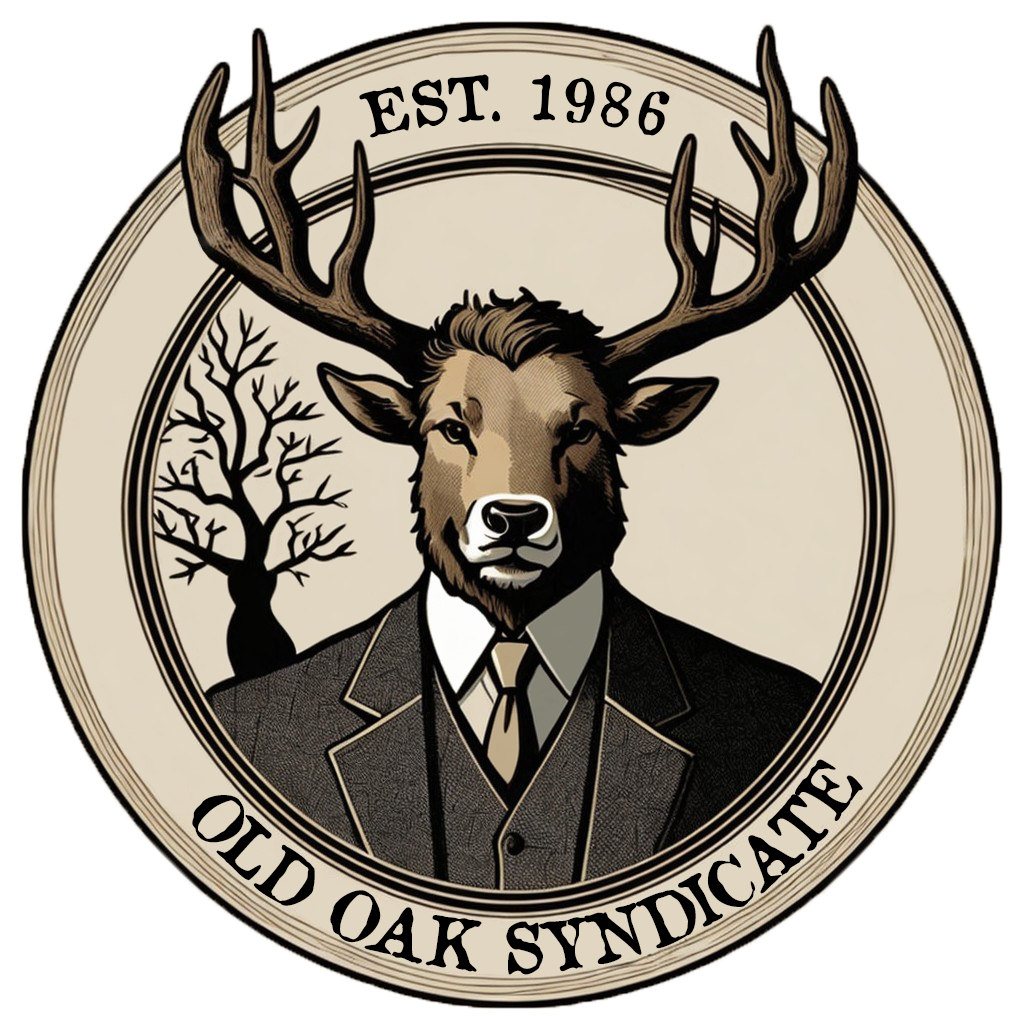Your cart is currently empty!

michigan successful deer hunter patches

Michigan is known for its rich deer hunting culture and traditions. For many residents, deer hunting is not just a hobby, but a way of life. It has deep roots in the state’s history and plays a significant role in its economy. Michigan’s deer hunting culture is characterized by a strong sense of community and a deep respect for nature. In this article, we will explore the tradition of Michigan deer hunting, the history of successful deer hunter patches, the importance of deer management, the criteria for earning a patch, the role of conservation officers, the impact of technology on hunting, the significance of Michigan’s deer hunting culture, the evolution of the patch program, the benefits of hunting in Michigan’s great outdoors, and the future of the deer hunting industry in the state.
Key Takeaways
- Michigan has a long tradition of deer hunting, dating back to the early 1800s.
- Successful Deer Hunter Patches have been awarded in Michigan since the 1930s, and have become a symbol of pride for hunters.
- Deer management is crucial in Michigan to maintain a healthy population and prevent overpopulation.
- To earn a Successful Deer Hunter Patch in Michigan, hunters must meet certain criteria, including harvesting a deer and passing a hunter safety course.
- Conservation officers play a vital role in enforcing hunting regulations and ensuring the safety of hunters and the environment.
- Technology has had a significant impact on Michigan deer hunting, with advancements in equipment and tools changing the way hunters approach the sport.
- Michigan’s deer hunting culture is deeply rooted in the state’s history and natural resources, and is an important part of its identity.
- The Successful Deer Hunter Patch program has evolved over time to reflect changes in hunting practices and conservation efforts.
- Hunting in Michigan’s great outdoors offers numerous benefits, including exercise, fresh air, and the opportunity to connect with nature.
- The future of Michigan’s deer hunting industry depends on continued conservation efforts and responsible hunting practices.
The Tradition of Michigan Deer Hunting
Deer hunting has a long and storied history in Michigan. Native American tribes were hunting deer in the region long before European settlers arrived. When settlers began to establish communities in Michigan, they quickly recognized the abundance of deer and the importance of hunting for survival. As time went on, deer hunting became more than just a means of sustenance; it became a cherished tradition passed down from generation to generation.
Today, deer hunting is deeply ingrained in Michigan’s culture. It is a time-honored tradition that brings families and communities together. Opening day of deer season is like a holiday in many parts of the state, with schools closing and businesses slowing down as people head to their favorite hunting spots. The camaraderie and shared experiences that come with deer hunting create lasting memories and strengthen bonds between friends and family members.
In addition to its cultural significance, deer hunting also plays a vital role in Michigan’s economy. The state boasts one of the largest populations of white-tailed deer in the country, attracting hunters from near and far. These hunters spend money on licenses, equipment, lodging, and other goods and services, providing a significant boost to local businesses. The economic impact of deer hunting in Michigan cannot be overstated.
The History of Successful Deer Hunter Patches
The successful deer hunter patch program in Michigan has a long history that dates back to the early 1900s. The program was initially created as a way to recognize and reward successful hunters while also promoting responsible hunting practices. The first patches were simple cloth badges that hunters could sew onto their jackets or hats to show off their achievements.
Over the years, the design of the patches has evolved to reflect changes in hunting regulations and cultural trends. In the early days, the patches featured simple designs with the words “Successful Deer Hunter” and the year of the hunt. As time went on, the patches became more elaborate, incorporating images of deer, hunting scenes, and other elements that symbolized the sport.
Today, successful deer hunter patches in Michigan are highly sought after and cherished by hunters. They serve as a badge of honor and a symbol of accomplishment. Many hunters proudly display their patches in their homes or on their hunting gear as a reminder of their successful hunts and their dedication to the sport.
The Importance of Deer Management in Michigan
Deer management is a critical aspect of wildlife conservation in Michigan. The state’s Department of Natural Resources (DNR) plays a central role in managing deer populations to ensure their long-term sustainability and maintain a healthy ecosystem.
Overpopulation of deer can have detrimental effects on both the environment and human populations. When deer populations become too large, they can cause damage to crops, gardens, and natural habitats. They can also contribute to an increase in vehicle collisions, which pose a risk to both drivers and deer.
On the other hand, underpopulation of deer can also have negative consequences. Deer play an important role in maintaining biodiversity by controlling vegetation growth and providing food for other species. When deer populations decline, it can disrupt the balance of the ecosystem and lead to a decrease in biodiversity.
The Michigan DNR uses a variety of methods to manage deer populations, including regulated hunting seasons, habitat management, and population surveys. By carefully monitoring and controlling deer populations, the DNR aims to strike a balance that benefits both the environment and the people of Michigan.
The Criteria for Earning a Successful Deer Hunter Patch
Earning a successful deer hunter patch in Michigan is no easy feat. Hunters must meet certain criteria to be eligible for a patch, including obtaining a valid hunting license, following all hunting regulations, and successfully harvesting a deer during the designated hunting season.
The requirements for earning a patch vary depending on the level of achievement. There are different patches for different types of deer hunts, such as archery, firearm, and muzzleloader hunts. Additionally, there are patches for hunters who harvest bucks with specific antler characteristics, such as a minimum number of points or a minimum antler spread.
Each patch has its own significance and represents a different level of accomplishment. For example, earning a patch for harvesting a buck with a large antler spread is considered a major achievement and is highly coveted among hunters. The criteria for earning each patch are carefully designed to promote responsible hunting practices and ensure the sustainability of deer populations.
The Role of Conservation Officers in Michigan Deer Hunting
Conservation officers play a crucial role in ensuring that hunting regulations are followed and that hunters engage in safe and ethical practices. During hunting season, conservation officers are responsible for patrolling hunting areas, checking licenses and permits, enforcing bag limits, and educating hunters about hunting laws.
The presence of conservation officers helps to deter illegal hunting activities and promote compliance with hunting regulations. They also provide valuable guidance and support to hunters, answering questions and offering advice on topics such as deer management, safety precautions, and ethical hunting practices.
It is essential for hunters to cooperate with conservation officers and follow their instructions. By doing so, hunters can contribute to the overall success of the deer hunting season and help maintain a safe and sustainable hunting environment for future generations.
The Impact of Technology on Michigan Deer Hunting
Advancements in technology have had a significant impact on deer hunting in Michigan. From high-tech hunting gear to sophisticated trail cameras, technology has revolutionized the way hunters approach the sport. While these advancements have undoubtedly made hunting more efficient and convenient, they have also raised questions about the ethics and fairness of using technology in hunting.
One of the most significant advancements in hunting technology is the use of trail cameras. These cameras are strategically placed in hunting areas to capture images of deer and other wildlife. They allow hunters to monitor deer movement patterns, track individual deer, and gather valuable information that can improve their chances of a successful hunt.
While trail cameras can be a useful tool for hunters, some argue that they give an unfair advantage and take away from the traditional skills and instincts required for successful hunting. Others argue that trail cameras can be used responsibly and ethically, as long as they are not relied upon too heavily and do not replace the fundamental principles of fair chase.
Another area where technology has had a significant impact is in hunting gear and equipment. Advances in materials, design, and manufacturing have resulted in lighter, more durable, and more effective hunting gear. From high-powered rifles to state-of-the-art compound bows, hunters now have access to equipment that can greatly enhance their chances of a successful hunt.
However, it is important for hunters to remember that technology should not replace skill and experience. While advanced gear can improve accuracy and efficiency, it is still essential for hunters to possess the knowledge and skills necessary to make ethical shots and ensure a clean kill.
The Significance of Michigan’s Deer Hunting Culture
Michigan’s deer hunting culture is about more than just harvesting deer; it is about community, tradition, and a deep connection to the natural world. Deer hunting brings people together in a way that few other activities can. It creates a sense of camaraderie and shared experiences that forge lifelong friendships and strengthen family bonds.
In many communities across Michigan, deer hunting is a time-honored tradition that is passed down from generation to generation. Fathers teach their sons and daughters the skills and values of hunting, instilling in them a deep respect for nature and a sense of responsibility for wildlife conservation.
Deer hunting also plays a significant role in the cultural identity of many Michigan residents. It is a source of pride and a way to connect with the state’s rich history and heritage. The traditions and rituals associated with deer hunting, such as opening day traditions, campfire stories, and the sharing of venison recipes, are cherished and celebrated by hunters throughout the state.
The Evolution of Michigan’s Successful Deer Hunter Patch Program
The successful deer hunter patch program in Michigan has evolved over time to reflect changes in hunting regulations, cultural trends, and advancements in design technology. In the early days of the program, patches were simple cloth badges with basic designs that denoted the year of the hunt and the words “Successful Deer Hunter.”
As the program gained popularity and more hunters began earning patches, the designs became more elaborate and detailed. Images of deer, hunting scenes, and other elements related to the sport were incorporated into the patches to make them more visually appealing.
In recent years, there has been a renewed focus on promoting responsible hunting practices and ethical behavior. The criteria for earning patches have been revised to emphasize fair chase principles, conservation efforts, and safety precautions. The designs of the patches now often include symbols or slogans that represent these values.
Looking ahead, there are plans to further enhance the patch program by incorporating new technologies and interactive elements. For example, there have been discussions about creating digital patches that hunters can display on their smartphones or other electronic devices. These digital patches could include additional information about the hunt, such as the location, date, and other details.
The Benefits of Hunting in Michigan’s Great Outdoors
Hunting in Michigan’s great outdoors offers a wide range of benefits, both for individuals and for the state as a whole. Spending time in nature has been proven to have numerous health benefits, including reduced stress levels, improved mental well-being, increased physical fitness, and enhanced cognitive function.
Hunting also provides an opportunity for individuals to connect with nature on a deeper level. It allows them to observe wildlife in its natural habitat, learn about different ecosystems, and develop a greater appreciation for the natural world. This connection to nature can foster a sense of stewardship and inspire individuals to become advocates for wildlife conservation.
In addition to the personal benefits, hunting tourism in Michigan brings significant economic benefits to the state. Each year, thousands of out-of-state hunters travel to Michigan to experience its world-class deer hunting opportunities. These hunters spend money on licenses, equipment, lodging, food, and other goods and services, providing a boost to local businesses and contributing to the state’s economy.
The Future of Michigan’s Deer Hunting Industry
While Michigan’s deer hunting industry faces some challenges, such as declining participation rates and changing demographics, there is also great potential for growth and innovation. The state’s Department of Natural Resources is actively working to address these challenges and ensure the long-term sustainability of the industry.
One area of focus is attracting new hunters and increasing participation rates among younger generations. Efforts are being made to promote hunting as a family-friendly activity and provide educational programs that teach young people about hunting ethics, safety precautions, and wildlife conservation.
Another area of potential growth is in the development of new technologies and hunting practices. Advances in technology have the potential to make hunting more accessible and enjoyable for a wider range of individuals. For example, the use of virtual reality technology could allow people to experience the thrill of hunting without actually harming animals.
Overall, the future of Michigan’s deer hunting industry looks promising. With continued support from the state government, conservation organizations, and hunting enthusiasts, the industry can thrive and continue to contribute to Michigan’s culture, economy, and natural heritage.
Michigan’s deer hunting culture and traditions are deeply rooted in the state’s history and play a significant role in its economy. The successful deer hunter patch program is a cherished tradition that recognizes and rewards hunters for their achievements while promoting responsible hunting practices. Deer management is essential to maintaining a healthy ecosystem and ensuring the long-term sustainability of deer populations.
Conservation officers play a crucial role in enforcing hunting regulations and promoting safe and ethical hunting practices. Technology has had a significant impact on deer hunting in Michigan, both in terms of gear and equipment advancements and the use of trail cameras. Michigan’s deer hunting culture brings communities together and passes down traditions from generation to generation.
The future of Michigan’s deer hunting industry holds great potential for growth and innovation. By attracting new hunters, embracing new technologies, and continuing to prioritize wildlife conservation, the industry can thrive and continue to contribute to Michigan’s culture and economy. Participating in the successful deer hunter patch program is not only a way to celebrate achievements but also a way to continue the tradition of Michigan deer hunting for future generations.
If you’re a Michigan deer hunter who has successfully earned your patches, you might be interested in exploring other exciting hunting opportunities. One such adventure awaits in the snowy fields of pheasant hunting. Discover the thrill of tracking these beautiful birds amidst a winter wonderland by checking out this article on pheasant hunting in snow. And while you’re at it, don’t forget to browse through the Old Oak Syndicate’s online store, where you can find all the essential gear and equipment for your next hunting expedition. From firearms to clothing and accessories, their cart has got you covered. If you’re looking for a unique challenge, they even have an article on how to hunt rabbits without a gun. Find out more about this unconventional hunting method by visiting here. Happy hunting!
FAQs
What are Michigan Successful Deer Hunter Patches?
Michigan Successful Deer Hunter Patches are patches that are awarded to hunters who have successfully harvested a deer in Michigan.
Who is eligible to receive a Michigan Successful Deer Hunter Patch?
Any hunter who has successfully harvested a deer in Michigan is eligible to receive a Michigan Successful Deer Hunter Patch.
How can I apply for a Michigan Successful Deer Hunter Patch?
You do not need to apply for a Michigan Successful Deer Hunter Patch. If you have successfully harvested a deer in Michigan, you will automatically receive a patch in the mail.
What is the purpose of the Michigan Successful Deer Hunter Patch?
The Michigan Successful Deer Hunter Patch is a way to recognize and celebrate the achievements of hunters who have successfully harvested a deer in Michigan.
What does the Michigan Successful Deer Hunter Patch look like?
The Michigan Successful Deer Hunter Patch features an image of a deer and the words “Michigan Successful Deer Hunter” in bold letters.
Is there a cost to receive a Michigan Successful Deer Hunter Patch?
No, there is no cost to receive a Michigan Successful Deer Hunter Patch. The patch is provided free of charge to hunters who have successfully harvested a deer in Michigan.
Can I receive a Michigan Successful Deer Hunter Patch if I am not a resident of Michigan?
Yes, non-resident hunters who have successfully harvested a deer in Michigan are also eligible to receive a Michigan Successful Deer Hunter Patch.

Herb has been a longtime lover of the outdoors. Whether it be hunting, camping, fishing or just getting outside to reset. Proud father and animal lover. Bourbon anyone?

by
Tags:
Comments

Categories
- Big Game Hunting (301)
- Deer (202)
- Reviews (3)
- Shooting (16)
- Slingshot (1)
- Small Game Hunting (42)
- Upland Hunting (126)
- Waterfowl Hunting (3)





Leave a Reply